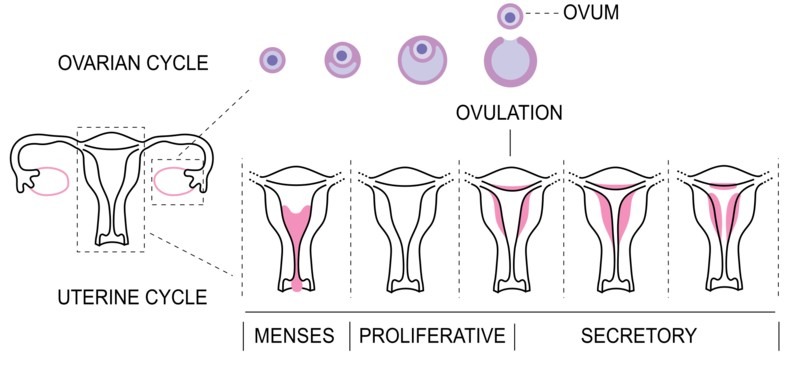Every day over 800 million individuals experience menstruation, yet conversations about periods remain somewhat forbidden. Menstrual stigma is rooted in historical misogyny and is still widely enforced by the lack of education on women’s health. Despite vague maturation programs taught in middle school, most women grow up with little knowledge of their bodies. Typical menstruation symptoms such as abdominal cramping, headaches, and joint pain are even misunderstood as life-threatening conditions by uninformed young girls.
Inadequate menstrual education harms women, but it also impacts those who don’t experience periods. Without out-in-the-open conversations about women’s health, men may not understand why women experience pain or mood swings throughout their cycle. Failing to empathize with menstruating women only further stigmatizes periods.
Comprehensive period education starts with understanding your cycle. Many people falsely view the menstrual cycle as the short period where bleeding occurs. Unbeknownst to most, menstruating individuals will experience four distinctive phases during the usual 28-day cycle. Each month, the female body will go through the follicular phase, menstruation, ovulation, and luteal phase. Although, it’s worth noting that this cycle varies from woman to woman. For questions about symptoms or abnormality, consult menstrual health resources for clarity.
Ready to break the menstrual stigma? Check out these widely-circulated period myths.
You can’t get pregnant during menstruation
While the odds of becoming pregnant during the bleeding phase are low, it’s not impossible. Sperm can live inside the body for up to five days, meaning they can fertilize an egg once your body begins ovulation. Play is safe by practicing safe sex throughout your cycle and talk to your partner about the possibility of pregnancy during your period.
Your period should always last for a week each month
Your body is a one-of-a-kind masterpiece, so it’s only normal that your period is too. Most women experience a period that lasts about five days, but they can be shorter or longer depending on stress levels or hormonal changes. The length of your period may fluctuate throughout your life, so don’t worry if you happen to bleed for longer than usual.
You can only use a pad or tampon
Cotton pads and tampons are perfectly suitable to deal with bleeding, but there are also other methods available to you. Menstrual cups might take a second to figure out. However, once inserted, they hold a large amount of blood for up to 12 hours. For those who prefer a less invasive method, period underwear is ideal. The reusable product will absorb all the blood and is comfortable to wear.
PMS is all in your head
Premenstrual syndrome is a serious symptom that can result in extreme mood swings, anxiety, and fatigue. Some women may experience mild PMS, but others are forced to skip work or school when dealing with severe cases. Give yourself some credit if you feel particularly irritated during your period, and support your body with plenty of sleep and a nutritious diet.
Bottom line
Half of the people on Earth experience periods, so why is there such a misunderstanding surrounding menstruation? The next time you hear someone spouting these period myths, lay menstrual misconceptions to rest.

